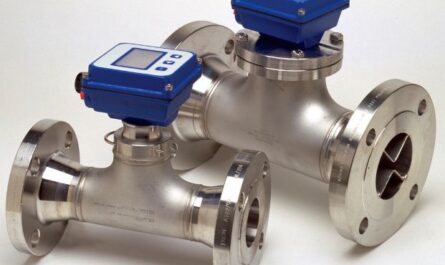Biosimilars have the potential to transform healthcare by improving patient access to expensive yet life-saving biologic medicines. Biologics have revolutionized the treatment of serious and chronic diseases like cancer, diabetes, and rheumatoid arthritis. However, the high costs of these innovative medicines have placed them out of reach for many patients. Biosimilars promise to drive down costs and expand treatment options through meaningful competition.
What are Biosimilars?
A biosimilar is a biologic medicine that is developed to be similar to an already approved biologic medicine, known as the reference product or originator biologic. Biosimilars undergo rigorous clinical testing and regulatory review to demonstrate they are highly similar to the reference biologic in terms of quality characteristics, biological activity, safety and efficacy.
The Development Process of Biosimilars
Developing a Biosimilars is an intricate, multi-step process that takes many years and involves extensive analytical, preclinical and clinical testing. Manufacturers must demonstrate the biosimilar is comparable to the reference product on the molecular level by using advanced technologies like mass spectrometry and genomic fingerprinting.
Preclinical studies with animals are conducted to show the biosimilar behaves the same way in the body as the reference product. Pivotal clinical studies in humans are typically carried out to assess the safety, efficacy and immunogenicity of the biosimilar compared to the reference product. The exact clinical trial requirements vary depending on the reference product but abbreviated clinical studies are usually performed instead of duplicative large-scale trials.
Regulatory Pathways and Approval Standards
Stringent regulatory standards have been established globally to ensure biosimilars approved for marketing have no clinically meaningful differences from the reference medicines in terms of safety, purity and potency. In the US, biosimilars are reviewed and approved by the FDA according to the stringent scientific criteria and in Europe by the EMA. Both agencies require biosimilars to demonstrate “biosimilarity” or “high similarity” versus the reference product based on analytical, non-clinical and clinical evidence.
Besides the US and EU, Canada, Australia, Japan and several other developed countries have also harmonized regulatory frameworks for approval and interchangeability of biosimilars based on the totality of evidence. Globally recognized guidelines issued by WHO also provide a framework to regulate these complex products. With robust regulation and oversight, biosimilars approved in one region may be approved in other regions where the reference product is also licensed through an abbreviated pathway.
Cost Savings and Expanded Access
An important advantage of biosimilars is their ability to potentially reduce healthcare costs while expanding treatment options for patients. Savings arise through meaningful competition by multiple manufacturers. Without patent or exclusivity barriers once biologics go off-patent, biosimilars can typically enter the market at a 20-30% lower price point than the reference product, as seen with FDA approved biosimilars.
With increasing uptake of biosimilars over time, even greater cost savings can accrue to the healthcare system which gets passed on to patients, employers, insurers and the government. This expanded use of biosimilars may increase affordability and accessibility of life-changing biologic treatments especially for chronic diseases that require long-term therapy like cancer and diabetes.
Patient and Provider Perspectives
While biosimilars provide clear advantages in terms of cost-savings, it is imperative they maintain the same standards of quality, safety and effectiveness demonstrated by the reference products. Medical associations and regulatory agencies worldwide recommend physicians and patients carefully consider biosimilars as alternative treatment options on a case-by-case basis.
Provider education is key to reassuring both physicians and patients about approving biosimilars only after thorough review of available evidence. With adequate transparency from regulators and manufacturers regarding approval standards and totality of evidence, healthcare providers play an important role in guiding treatment shared decision making with patients. Widespread acceptance of biosimilars depends on maintaining trust through ongoing pharmacovigilance and real-world effectiveness monitoring.
Future Outlook
As more biologics lose patent protection in the coming years and appropriate substitution policies are established, the global biosimilars market is projected to grow significantly. It is predicted biosimilar sales in the US and EU5 countries (France, Germany, Italy, Spain, UK) alone may surpass $60 billion by 2025. As leading drug markets, the US and EU approvals will significantly encourage global uptake and domestic development of biosimilars in other regions like Asia, Latin America and Africa.
This expansion offers unprecedented opportunity to enhance patient access to high-quality biologics globally which can aid public health challenges like managing chronic diseases and reducing disparities in healthcare resources. With an established economic and regulatory framework, biosimilars are well-positioned to revolutionize patient care and make biologic treatment broadly affordable to benefit healthcare worldwide. Ongoing monitoring will further reassure providers and society on the safety and effectiveness profile of these important medicines.
*Note:
1. Source: Coherent Market Insights, Public sources, Desk research
2. We have leveraged AI tools to mine information and compile it


